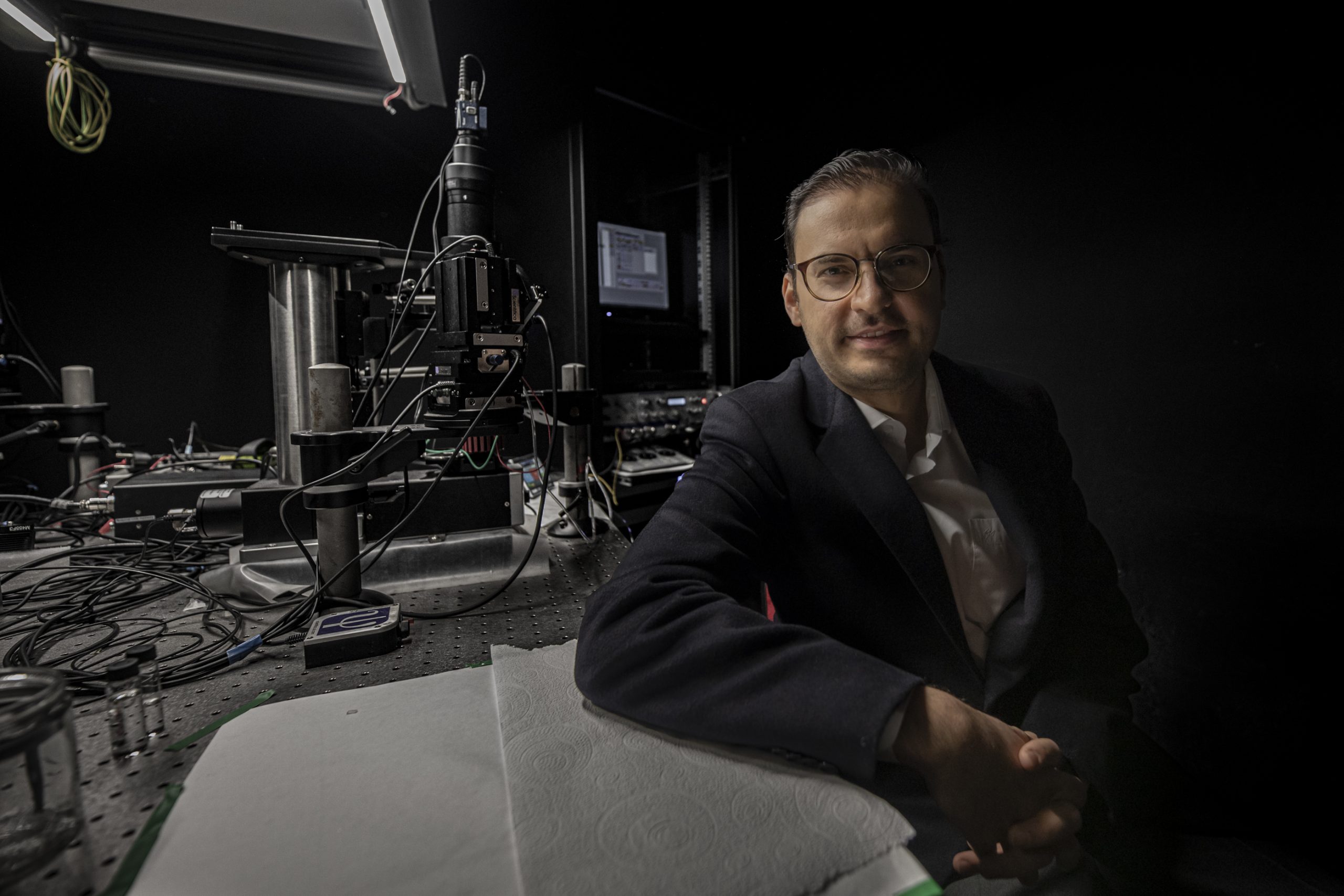
European Research Council (ERC) Consolidator Grant, which provides support for the most original and innovative scientific research, was given to Assoc. Prof. Sedat Nizamoğlu from the Department of Electrical and Electronics Engineering. Assoc. Prof. Nizamoğlu received 2 million Euros with his “Retinal Mesh Optoelectronics” project and is currently developing novel retinal implants that are biocompatible, safe, with high pixel density for visual acuity, and can be taken off.
Even though methods and strategies such as drug injections, stem cells, optogenetics, and gene therapies are promising in preventing photoreceptor degeneration and photoreceptor cell loss, which are among the major causes of blindness, they are all subjected to serious limitations at the moment. Alternative approaches developed instead of these also cannot be manufactured, due to challenges in production and limitations in quality. For this reason, Assoc. Prof. Sedat Nizamoğlu and his team combine nanomaterials and unconventional electronic approaches to develop novel retinal implants they call “Retinal Mesh Optoelectronics.”
Animal experiments of their implants regarding recovery of eyesight will be carried out at the Institute de la Vision in Paris, in collaboration with Dr. Serge Picaud, the Institute Director.